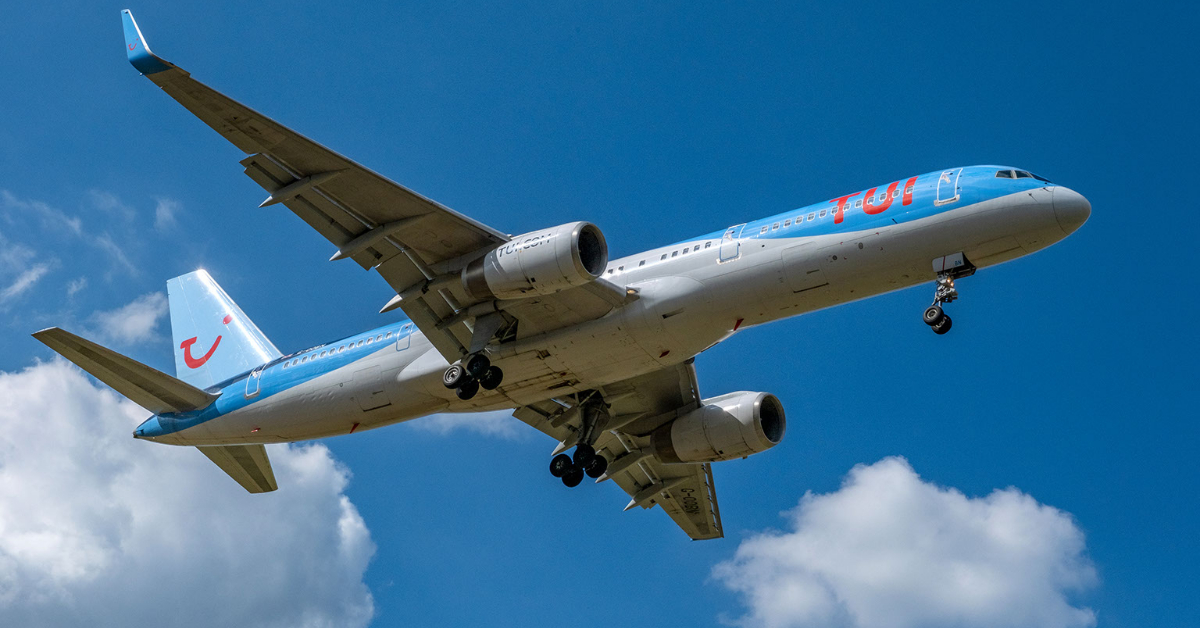Wizz Air has been ranked the worst airline for UK flight delays despite a surge in fares, an investigation has found.
The low-cost carrier’s departures from UK airports were an average of 31 minutes and 36 seconds behind schedule in 2023, according to analysis of Civil Aviation Authority (CAA) data by the PA news agency.
This was a reduction of nearly a third compared with 2022, but means the airline recorded the worst punctuality for UK flights for three consecutive years.
Wizz Air said it has made “significant improvements” but acknowledged there is “still work to be done”.
Turkish Airlines recorded the second worst punctuality last year, with an average delay of 28 minutes and 36 seconds.
This was followed by Tui (28 minutes and 24 seconds), Air India (28 minutes and 12 seconds) and Turkish low-cost carrier Pegasus Airlines (25 minutes and six seconds).
Consumer group Which? said airline passengers are in the “outrageous position” of paying record air fares for “unreliable services”.
Irish carrier Emerald Airlines recorded the best performance last year with an average delay of just 13 minutes and six seconds, with Virgin Atlantic in second place (13 minutes and 42 seconds).
The analysis took into account all scheduled and chartered departures from UK airports by airlines operating more than 2,500 flights. Cancelled flights were not included.
The average delay for all these flights was 20 minutes and 42 seconds, down from 23 minutes in 2022.
Wizz Air’s UK operations serve Aberdeen, Birmingham, Gatwick, Glasgow, Leeds, Liverpool and Luton airports.
Despite its poor UK punctuality, the airline – which operates in Europe, north Africa, the Middle East and other parts of Asia – saw passenger numbers reach a record 62.0 million in the year to the end of March, up by more than a fifth on the total of 51.1 million in the previous 12 months.
Over the same period, Wizz Air recorded a pre-tax profit of 341.1 million euros (£290.4m), as its revenue from ticket sales per available seat rose by 11.2% year-on-year, which was similar to fare rises across the airline sector.
Aviation consultant John Strickland said Wizz Air had “many unhappy customers” – particularly in 2022 – as it struggled with punctuality due to being “over ambitious” in terms of how many flights it could operate reliably after coronavirus travel restrictions eased.
 iStock
iStockHe said the airline has “put a lot of effort in” to improve through measures such as replanning rosters and having more standby aircraft available, but “the fruits of that will not be seen immediately”.
Asked why it has been able to boost passenger numbers despite suffering delays, Mr Strickland cited factors such as being “price competitive” and having the most capacity on many routes serving central and eastern Europe.
Rory Boland, editor of magazine Which? Travel, said: “These latest delay figures will come as no surprise to travellers, who find themselves in the outrageous position of paying record amounts for air fares and in return receiving unreliable services.
“Wizz Air recently took the bottom spot in our annual airline satisfaction survey and it’s clear its passengers are still having a torrid time.
“It’s time for airlines to get their act together and start delivering the service their customers are paying for – including ensuring they’re investing properly in their customer service teams.
“When delays and cancellations do occur, there can be no justification for airlines failing to meet their legal obligations – including promptly refunding or rerouting customers, and ensuring they are offered meals and accommodation as required.”
Wizz Air was ranked the worst airline for passenger satisfaction in an annual report by Which? published in February, with survey respondents awarding it an average of one star out of a possible five for customer service and seat comfort.
A Wizz Air spokeswoman said: “In 2022, like all airlines in Europe, Wizz Air experienced extraordinary operating challenges driven mostly by the external environment.
“Since then, we have invested more than £90m to stabilise operations, reduce the number of delays and provide a better experience for customers.
“While we saw significant improvements in 2023, there was still work to be done.
“Helping our customers reach their destination is our number one priority and we will continue to invest in our service to ensure they get there on time.”
She added that the airline’s current performance is “among the strongest in the entire industry”, with a punctuality record that is “the highest among our direct competitors” and “the best flight completion rate in the whole of Europe”.
In January, the CAA said its enforcement action against Wizz Air led to the airline paying a total of £1.2m to UK-based passengers whose financial claims were reassessed after initially being rejected.
This included payments of money owed for expenses such as replacement flights, food and hotel rooms during disruption.
Dale Keller, chief executive of the Board of Airline Representatives in the UK, a body representing airlines operating in the UK, described 2023 as “an extremely challenging year, particularly over the summer”.
He said many delays were caused by factors outside of airlines’ control, such as air traffic control disruption including strikes in France and the National Air Traffic Services meltdown on August 28 which grounded flights across UK airports.
He added that airlines are confident their operations are “in a pretty good place” and punctuality has “continued to exponentially improve” this year.
Follow STV News on WhatsApp
Scan the QR code on your mobile device for all the latest news from around the country

























